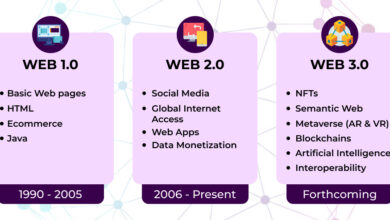The name Yandex immediately conjures images of the vast digital landscape of Russia, where it reigns supreme as the undisputed king of search and an ecosystem powerhouse rivaling Google. However, the story of Yandex is not confined to its home borders. Its forays into international markets, particularly the nuanced and highly competitive arena of Japan, present a fascinating case study in global technology strategy. While the core DNA of innovation and machine learning remains the same, the operational realities of Yandex Japan and Yandex Russia reveal striking and profound differences.
Understanding these differences is crucial for anyone tracking global tech trends, market localization, or the strategies employed by internet giants when crossing cultural and linguistic barriers. It’s a tale of two markets, two user bases, and two distinct technological applications stemming from the same parent company. The divergence is evident in everything from their primary services to their market penetration strategies and even the core technological adaptations they had to undergo.
🇯🇵 Market Focus and Primary Offerings: The Divergent Service Catalogs
The most immediate and obvious difference between the Russian and Japanese branches of Yandex lies in their primary market focus and the suite of services they offer to consumers.
Yandex Russia: The Ecosystem Powerhouse
In Russia, Yandex is more than just a search engine; it is an omnipresent digital ecosystem. Its breadth of services is staggering and includes:
-
Yandex Search: The dominant search engine, holding the majority market share.
-
Yandex Taxi (Yandex Go): A leader in ride-hailing, now also encompassing food delivery, groceries, and freight.
-
Yandex Market: A major e-commerce platform and online marketplace.
-
Yandex Music: A primary music streaming service.
-
Yandex Mail: A widely used free email service.
-
Yandex Cloud: A growing cloud computing infrastructure competitor.
-
Yandex Alice: A popular Russian-language smart assistant.
The strategy in Russia is vertical integration and ubiquity. The goal is to keep users within the Yandex ecosystem for all their daily digital needs, leveraging cross-promotion across its robust catalog of offerings. Based on numerous reports, including analysis from Vedomosti, this comprehensive approach has cemented its dominance.
Yandex Japan: A Specialized, B2B Niche
In stark contrast, Yandex Japan operates with a far more focused and specialized strategy. It is not, and has never aimed to be, a general-purpose search engine competitor to giants like Google and Yahoo! Japan in the consumer space. The Japanese search market is notoriously difficult to penetrate, given the entrenched local preference and the dominance of existing players.
Instead, Yandex Japan has typically focused on leveraging the company’s core technological strengths for specialized, business-to-business (B2B) applications. Key areas of focus have historically included:
-
Machine Translation (MT): Offering sophisticated translation tools, especially for Japanese to other languages (and vice versa), which is crucial for international business.
-
Computer Vision and Image Recognition: Utilizing Yandex’s expertise in AI to provide services like image search and visual data analysis, often licensed to other Japanese companies.
-
Ad Tech: Providing specialized advertising technology and data processing solutions to Japanese advertisers and publishers.
This strategic retreat from a direct consumer battle highlights a fundamental difference in strategic risk assessment. Rather than pouring resources into an uphill fight, the Japanese operation focused on monetizing specialized Yandex technology, a strategy supported by internal tech blogs and business analyses.
💻 Technological Divergence: Language, Hardware, and AI
While both entities share the underlying AI and machine learning expertise developed by the parent company, their specific technological challenges and adaptations have led to significant divergence.
The Linguistic and Script Challenge
The most critical technological hurdle for Yandex’s core technology in Japan is linguistic processing. Russian and Japanese are fundamentally different languages, requiring distinct approaches in search algorithms and natural language processing (NLP).
-
Russian: An inflected language using the Cyrillic alphabet. Word endings change to indicate grammatical role.
-
Japanese: A language utilizing three scripts (Kanji, Hiragana, Katakana) and relying on context and particles rather than inflection. Search query analysis and tokenization are vastly more complex due to the lack of word boundaries.
To successfully operate, Yandex Japan had to develop highly specialized Japanese NLP models that could handle the nuances of the writing system and the language’s grammatical structure. This required a dedicated effort separate from the main Russian-language development. As documented in publications like TechCrunch when discussing search localization, this is a universal challenge for any global search engine.
Hardware Focus and Infrastructure
In Russia, Yandex invests heavily in its own data centers and specialized hardware to support its massive consumer services, including self-driving cars (using advanced sensor tech) and proprietary server infrastructure for search.
In Japan, the infrastructure footprint is geared toward its B2B specialization. The focus is less on scaling consumer-grade server capacity and more on:
| Feature | Yandex Russia | Yandex Japan |
| Primary Infrastructure | Large, proprietary data centers, specialized AI hardware (e.g., self-driving components) | Cloud-based infrastructure, localized partnerships for data processing |
| AI Focus | General-purpose search ranking, smart assistant (Alice), predictive models for logistics | Highly specialized NLP (Japanese), computer vision for B2B applications |
| Software Development | Full-stack development for consumer apps (Taxi, Music, Market) | API development and licensing for key B2B technologies (Translation, AdTech) |
🌐 Corporate Structure and International Strategy
The two operations also differ in their corporate role and the strategic significance they hold within the larger Yandex group.
Russia: The Core Engine
Yandex Russia is the operational, financial, and strategic core of the entire company. All major technological breakthroughs, strategic decisions, and revenue streams originate here. It is a large-scale, vertically integrated business critical to the Russian national digital economy. Its corporate structure is a sprawling network of subsidiaries and joint ventures covering almost every sector.
Japan: The International Outpost
Yandex Japan represents an international expansion strategy focused on market validation and technology licensing. It is a smaller, more nimble operation primarily tasked with:
-
Testing Global Competitiveness: Proving that Yandex’s AI and machine learning innovations can perform successfully in one of the world’s most demanding and unique markets.
-
Generating Export Revenue: Monetizing core technologies like translation and ad tech without the massive investment required for a consumer market entry.
-
Talent Acquisition: Tapping into Japan’s world-class engineering and AI talent pool.
The operational scale is dramatically different. Where Yandex Russia employs thousands across various verticals, Yandex Japan’s team is typically focused on specialized engineering and business development, working closely with local partners.
📈 Market Penetration and Competitive Landscape
The competitive environments in which Yandex Russia and Yandex Japan operate are virtually mirror images.
The Monopolistic Advantage (Russia)
In Russia, Yandex is the homegrown champion. It enjoys a significant cultural and political advantage, often placing it ahead of international competitors.
-
Search Market Share: Dominant, often fluctuating between 55% and 65%, consistently ahead of Google.
-
Key Advantage: Superior understanding of the Russian language (a crucial factor for search accuracy) and deep integration with domestic services (government portals, local news).
-
Competition: Primarily Google, followed by minor local players.
The Uphill Battle (Japan)
In Japan, the situation is the inverse. Yandex Japan operates in a market that is deeply entrenched and highly resistant to foreign entrants, a sentiment echoed by reports in The Japan Times concerning foreign tech companies.
-
Search Market Share: Negligible in the consumer search sector.
-
Key Advantage: Niche, high-quality B2B technology (e.g., translation APIs).
-
Competition: Intense, including Google, Yahoo! Japan (a highly localized version with strong domestic ties), and powerful local tech giants like Rakuten and SoftBank in various services.
The strategic choice to avoid a direct consumer confrontation in Japan shows a pragmatic approach to market differentiation, opting for profitability in a niche over a costly, low-return battle for consumer share.
❓ Frequently Asked Questions (FAQ)
To further clarify the nuances between the two operations, here are answers to common questions about the company’s dual presence.
Q: Does Yandex Japan offer a consumer search engine like Google or Yahoo! Japan?
A: No, not in the sense that Yandex Russia does. While Yandex’s underlying search technology is world-class, the Japanese operation has historically not marketed a general-purpose consumer search engine to challenge the dominance of the established players. Its focus remains on leveraging its AI and search-related technology for B2B partnerships and specialized applications like machine translation and image search APIs.
Q: Why did Yandex not attempt to replicate its Russian ecosystem in Japan?
A: Replicating the full ecosystem (Taxi, Market, Music, Mail, etc.) is prohibitively expensive and risky in Japan. Each sector is dominated by powerful, established local companies (e.g., LINE, Rakuten, SoftBank). A successful entry would require massive, sustained capital expenditure with low probability of success. The Japanese strategic decision was to pursue a high-margin, specialized B2B model, focusing on the core strength: advanced AI technology.
Q: Is the technology Yandex Japan uses superior to the Russian version?
A: The underlying AI foundation is shared, but the application is highly specialized. The Yandex Japan team has focused on optimizing NLP for the unique challenges of the Japanese language (Kanji, Hiragana, Katakana, and context-heavy grammar). Therefore, its Japanese-language specific models are highly refined for that market, while the Russian version is optimized for the vast, general-purpose services of the domestic ecosystem.
Q: What is the primary revenue stream for Yandex Japan?
A: Unlike Yandex Russia, which generates massive revenue from advertising on its search engine and from transactional services (ride-hailing, e-commerce), the revenue stream for Yandex Japan primarily comes from technology licensing, B2B services, and specialized advertising technology solutions provided to local companies and publishers.
The Takeaway: A Masterclass in Localization
The comparison between Yandex Russia and Yandex Japan is a fascinating study in technological globalization and the limits of transplanting a successful business model.
In Russia, Yandex is a colossal consumer platform defined by ubiquity and a vast, integrated ecosystem. Its primary goal is dominance through service integration, capitalizing on its first-mover advantage and technological superiority in the Russian language.
In Japan, Yandex is a highly specialized technological partner, defined by precision and a focused B2B strategy. Its primary goal is to monetize its foundational AI expertise without getting bogged down in an unwinnable consumer market battle.
Ultimately, both approaches, though radically different, reflect a smart, flexible strategy: Yandex knows when to fight for the whole pie (Russia) and when to focus on a profitable, high-tech slice (Japan). This strategic localization—adapting core technological capabilities to distinct market needs and competitive realities—is the key difference explained in the tale of these two Yandexes.
The future of both operations will continue to be tied to this strategic divergence. Yandex Russia will likely continue its expansion into logistics, finance, and cloud computing, while Yandex Japan will remain a vital outpost for technological refinement and international partnership development, quietly exporting the power of Russian-developed AI to one of the world’s most sophisticated tech markets.

 How to Access Blocked Sites on Android Without Root
How to Access Blocked Sites on Android Without Root How to Check for IP Leaks When Using a VPN (WebRTC & DNS)
How to Check for IP Leaks When Using a VPN (WebRTC & DNS) Stop Wasting Money! The Truth About the Proxy vs VPN Difference You Need to Know
Stop Wasting Money! The Truth About the Proxy vs VPN Difference You Need to Know How to Rewatch a TikTok Live: Complete Guide to Replays, Downloads, and Privacy
How to Rewatch a TikTok Live: Complete Guide to Replays, Downloads, and Privacy Want to Borrow Rp1 Million? Here’s How to Easily and Quickly Borrow DANA Balance
Want to Borrow Rp1 Million? Here’s How to Easily and Quickly Borrow DANA Balance What is Web 3.0? A Comprehensive Look at the Fair, Open, and Single-Boss-Free Internet of the Future
What is Web 3.0? A Comprehensive Look at the Fair, Open, and Single-Boss-Free Internet of the Future Free VPN That Works on Netflix: Honest Guide for 2025
Free VPN That Works on Netflix: Honest Guide for 2025